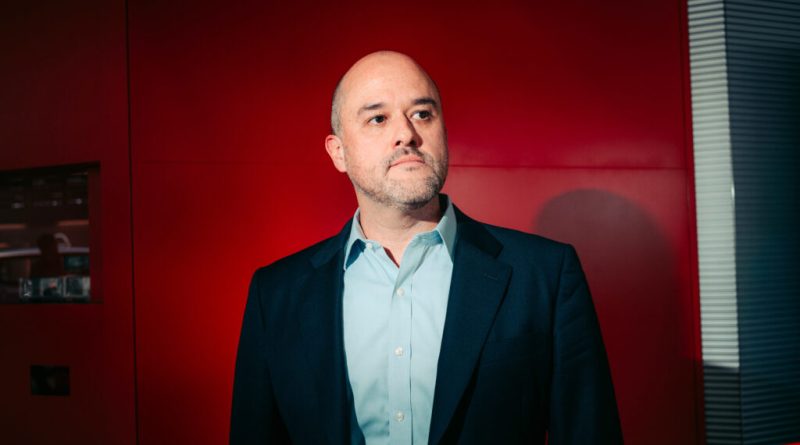Nissan CEO Seeks Faster Turnaround with Rapid New Car Launches
Nissan Motor Co is preparing to overhaul its outdated lineup as the Japanese automaker aims for a revival during its most critical financial crisis in 25 years.
“We are entering a phase where we will begin unveiling a series of new vehicles,” stated CEO Ivan Espinosa during an interview at Nissan’s Yokohama headquarters on Wednesday. This transition focuses on reducing bureaucratic hurdles to accelerate the launch of new models, “significantly shortening the development process,” he added.
“This will allow us to maintain a steady product rhythm and react more promptly to the shifting market trends,” Espinosa remarked.
Read: Nissan will sustain operations in SA and invest in the Navara – local MD
Espinosa, 46, is under mounting pressure to rejuvenate Nissan as its financial status continues to falter. The unsuccessful merger discussions with Honda Motor Co and a complicated relationship with main stakeholder Renault SA have left Nissan charting its own course. In May, the company revealed plans to downsize, which includes cutting 20,000 jobs and closing seven factories.
With previous issues stemming from a lackluster vehicle lineup, Nissan now relies on Espinosa — who previously handled that very lineup — to lead the transformation. The CEO, appointed in March, assured that there are numerous products in development aimed at reversing the company’s fortunes.
Upcoming updates include a redesigned Leaf electric vehicle and adjustments to one of its popular ‘kei’ minicars. Key releases feature new versions of the Elgrand minivan and the Kicks subcompact crossover. In the U.S., Nissan plans to launch an all-new version of its entry-level Sentra sedan later this year, along with a plug-in hybrid variant of its best-selling Rogue compact SUV in early 2026.
ADVERTISEMENT
CONTINUE READING BELOW
Read: SA auto sector grapples with perfect storm
Previously a pioneer with the Leaf, the world’s first mass-market electric vehicle, Nissan now serves as a cautionary example for other manufacturers about the dangers of not adapting to swiftly changing consumer preferences. Its earlier leadership in the EV market has been overshadowed by Tesla Inc. and further diminished due to fierce competition from Chinese firms like BYD Co.
Efforts to hasten product development and launch timelines commenced 18 months ago, noted Espinosa, who previously oversaw product planning and global strategy before stepping into the CEO position in April. These initiatives are starting to show results, as Nissan has learned lessons from competitive environments like China, where domestic EV manufacturers dominate.
Nissan aims to reduce the development timeline for new models to 37 months from the current average of over 50, seeking quicker market entry. However, competitor BYD can bring a concept to mass production in as little as 24 months.
Sales in China are increasing, with a 22% rise in July driven by demand for the all-electric N7 sedan. In contrast, sales have fallen in the U.S., despite overall vehicle demand holding steady against President Donald Trump’s stringent tariffs on imported vehicles and auto parts.
Read: Nissan’s new CEO faces investor scrutiny over job cuts
In addition to the challenges posed by market fluctuations and Trump’s tariffs, Nissan must also address significant internal issues, including over $5 billion in debt obligations due next year. In July, the company projected an operating loss of ¥180 billion ($1.2 billion) for the April-September period, aiming to raise over ¥1 trillion through debt and asset sell-offs.
ADVERTISEMENT:
CONTINUE READING BELOW
To date, Nissan has secured ¥850 billion, aligning with its recovery plan, Espinosa noted.
This total excludes a potential syndicated loan from UK Export Finance, referencing a Bloomberg News report about Nissan reportedly planning to secure a £1 billion ($1.4 billion) loan, backed by the agency. He mentioned that such issues haven’t been officially disclosed by Nissan, which operates the largest automotive manufacturing facility in Britain, located in Sunderland.
No asset is considered too valuable to be off the table for evaluation.
Read: Nissan job cuts expected to incur an additional $418m cost this fiscal year
A Japanese real estate subsidiary of KKR & Co has emerged as the top bidder for Nissan’s Yokohama headquarters, offering around ¥90 billion for the property, as reported by Bloomberg News in August. The manufacturer is also set to halt production at its Oppama plant, a vital facility in Japan, by March 2028.
“We are dedicated to doing everything possible to enhance the company’s performance,” Espinosa stated. “The key to improving our adaptability lies in speed, which is our current priority.”
© 2025 Bloomberg
Follow Moneyweb’s detailed finance and business updates on WhatsApp here.

